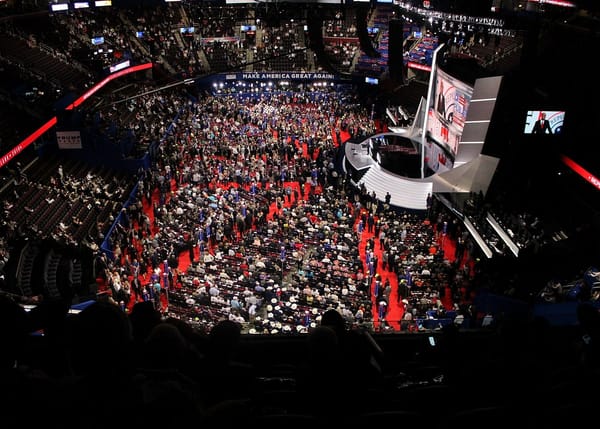Cleveland: The ‘showbiz’ convention?

CLEVELAND — Former Virginia Gov. Jim Gilmore, who earlier this year abandoned his own presidential ambitions after dismal performances in Iowa and New Hampshire, said Friday he thinks next week's Republican National Convention "is going to be largely showbiz."
The Republican from Richmond was noticeably candid regarding his thoughts on the future of politics and how reality television star and real estate mogul Donald Trump managed to capture the most votes out of a crowded field of GOP candidates. Gilmore, who participated in a panel discussion with USA Today's Washington bureau chief Susan Page and David Wilhelm, former chairman of the Democratic National Committee, also lamented the influence he claims cable news executives have on the democratic process.

